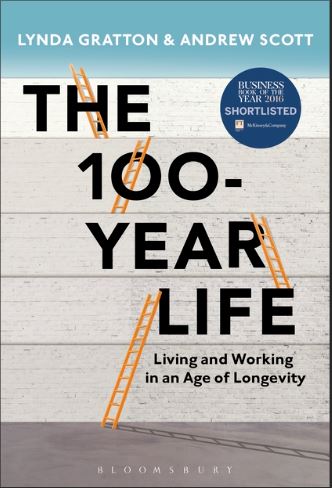Written off at 50? Why? What a waste!
25 July 2022 By Victoria Tomlinson

A few years ago I started picking up that employees are written off from the age of 50. To be honest, at first I didn’t really believe it. I thought maybe it was employees who hadn’t been able to adapt to technology; or that people were misreading signals at work.
But I am now seeing too much evidence. And what I can’t believe is – we have a skills shortage. Massive, massive skills shortage. Yet we aren’t linking the two.
Earlier this year, the government said there are 1.3 million vacancies and that means for every 100 jobs, there are 4.4 vacancies. And these are skills shortages in every industry, at every level of skill and seniority. But every year, employers continue to get rid of the most amazing asset – allow their older generation to retire and even encourage them to retire early.
Employers have just not adjusted their thinking to accommodate the 100-year life. In this blog I want to highlight the issues, suggest how some of this has arisen and most importantly, suggest new ways of working to make the most of their older generations.

First let’s look at our retirement age. The first retirement age was set in Germany in 1863 by Chancellor Otto von Bismarck to open up opportunities for younger employees. To sweeten the pill, he offered a pension to anyone aged over 65. At that time, hardly anyone lived to 65 so this was not an expensive offering.
Let’s repeat that. At that time, hardly anyone lived to 65. Now, in 2022 the most common age we die is 86 years old for men and 89 for women. Andrew Smith and Lynda Gratton wrote the 100-Year Life book because so many of us are living to 100 and beyond – in 2021, the Queen sent congratulations telegrams to 293,000 people who celebrated their 100 birthdays.
In the TEDx talk I did earlier this year I referenced research carried out by Jobsgopublic. This compared two generations in the workforce, 18 to 24 year olds with the 50+ generations. They asked both whether they felt their skills were recognised and used – the younger employees said yes (75% of them). But the same number, 75%, of the over 50s said no, their skills were not recognised or used.
This was the first hard evidence that the anecdotes I heard were not odd stories or a few people feeling badly done by.
Then I gave a talk for the Credit Services Association and a few government departments were in the audience. The director of one of these was very excited about my talk – highlighting the skills of 50+ – and asked for a call. To be honest, it felt bizarre to me. I was talking to four or five senior people from this large government body and suggesting they should look at different contracts for people instead of straight retirement.
I mentioned having been in hospital earlier in the year and chatting to a lot of nurses in their 70s and heard that the NHS now offers every kind of contract to nurses – and others – when they reach retirement age. There seemed to be school holiday contracts, weekends only, Wednesday afternoons, early mornings, lates and the rest. It seemed there was an option for everyone, whatever you wanted to work.
Nursing is a physical job and nurses were saying they couldn’t do the long shifts they used to and they wanted time to travel and enjoy themselves. But these contracts meant they could keep earning and using their skills, which is so important to all of us – to have purpose in our lives. But they could flex the hours they worked to suit their new life and fit in with family commitments – some were also looking after grandchildren and I remember one was studying. You can see this video I did with Margaret Bills – at 71 she continues to work shifts to fund her love of musicals and concerts. It’s a win for the NHS to keep her skills, for her so she can have a great life doing what she wants – and for society. By keeping active, mixing with people at work and being valued, people are less likely to get physically and mentally ill.
So what should HR directors be doing?
What we have discovered is that employers offer very little in the way of training and support to the older generation. We have just developed an online platform to help all employees as they come up to retirement – they work through ten modules at their own pace and develop a plan of what they want to do when they leave full-time working life.
In it, we suggest they may be interested in two things
- We mention that just about every organisation has a skills shortage. If they are interested in working longer, it could be worth talking to their line manager or HR to see if there are any other contracts on offer. A lot of people say that when they reach retirement age, they don’t want responsibilities any more and many are happy to do things like working in a call centre, driving or doing admin. They keep involved and interested, they won’t earn as much perhaps but they are earning more than sitting at home. So it is worth thinking about other options
- Before people leave their organisation, we suggest they could get involved in their employer’s ESG initiatives – things like achieving net zero carbon emissions; recruiting from schools in deprived areas; helping more women to get into leadership roles or working with their local community. These are things that all employers are looking for employee volunteers to help with. This is a great pre-retirement thing to get involved with – it can give new motivation and energy to an employee who has maybe been in the same job for years. They can learn about new issues and learn new skills in some of these areas. And they can meet people from other organisations to learn about best practice. This can all give them a new lease of life and an interest that they may be able to continue after they retire.
What we are hoping our platform will do, is to open up new thinking and opportunities for employees. I keep hearing from HR directors that age discrimination legislation now makes it difficult to speak to employees about their retirement plans. We hope to create cohorts of employees working together and supporting each other pre-retirement and this could open up opportunities for HR teams to have wider conversations with employees.
There is no doubt age and retirement are sensitive issues. Hopefully we can help to change the conversations at work so all employees have better opportunities for their futures.
We are looking for a few more employers to beta test this platform with their employees – please contact us if you are interested.
Working together we hope we can make a small contribution to the skills shortage and reduce the number of people who decline rapidly once they retire. It is not healthy for society and the ridiculous thing is there are thousands of employees who would love to be doing more than they are, in retirement.



